The Government's permission to reduce 50% of registration fees for domestically produced and assembled cars for 3 months (from September 1 to November 30, 2024) not only helps reduce the financial burden on consumers but also creates momentum for sales of domestic car manufacturers and spreads to other related industries.

This is considered one of the timely measures to stimulate consumer demand, while supporting domestic automobile manufacturing and assembly enterprises in the context of the economy being under pressure from global fluctuations.
Stimulate demand for car purchases
Specifically, the Government has just issued Decree No. 109/2024/ND-CP dated August 29, 2024, stipulating the registration fee for automobiles, trailers or semi-trailers pulled by automobiles and vehicles similar to automobiles manufactured and assembled domestically; which allows a 50% reduction in registration fees for new domestically manufactured and assembled automobiles registered for the first time. This Decree takes effect from September 1, 2024 to November 30, 2024. From December 1, 2024 onwards, the registration fee will continue to be applied as before, at a rate of 10 to 12% of the vehicle value.
Thus, this is the fourth time the policy of reducing 50% of registration fees for domestically produced and assembled cars has been applied, but this time it will only be applied for 3 months, instead of 6 months like the previous 3 times.
The reduction in registration fees has been applied by the Government three times before, each time for 6 months, and has brought positive results to the domestic automobile market. Specifically, the first time it was applied in the second half of 2020, the sales of domestically assembled cars increased dramatically, reaching 398,177 vehicles, double that of the first half of the year. The second time, from December 2021 to May 2022, with sales reaching 232,192 domestic cars, an average increase of 1.5 times compared to the previous period. The third time, applied in the second half of 2023, helped domestic car sales increase 1.6 times compared to the first 6 months of the year.
According to experts in the auto industry, this policy of reducing registration fees by 50% is not only a short-term stimulus measure but also a strategic move to promote the sustainable development of the Vietnamese auto industry. Reducing initial costs for consumers will create a large ripple effect, thereby stimulating shopping demand, promoting production and creating more jobs. In particular, this policy has received great sympathy from the consumer community, as registration fees are always one of the significant financial burdens when buying a car.
In the Vietnamese automobile market, the cheapest car is Kia Morning MT, which is currently priced at 349 million VND. When the registration fee is reduced by 50%, the reduction will be equivalent to 17.45 million VND; and luxury cars such as Mercedes-Benz E 300 AMG FL, priced at 3.209 billion VND, will have a reduction of up to 192 million VND. With such a reduction and depending on the locality applying the registration fee of 10% or 12%, it will help consumers save a significant amount.
According to experts, this halving of registration fees will certainly create a strong boost for the market, especially when it is only applied in the last 3 months of 2024. This could be an opportunity for car manufacturers and consumers to take advantage of this policy to boost sales and own the desired cars at a more reasonable cost. In particular, the registration fee is considered a large amount of money, when this policy is applied, it is enough for consumers to consider upgrading to a higher-end car version or equipping other options.
Mr. The Dat, an expert in the automobile industry, assessed that the 50% reduction in registration fees for domestically produced cars will help stimulate demand for cars, especially in the context of a slowdown in purchasing power in the automobile market due to the impact of inflation and economic difficulties. "This policy will significantly reduce the initial cost for car buyers, thereby encouraging consumers to be more confident in making purchasing decisions," Mr. Dat shared.
In addition, this Decree not only benefits consumers but also helps domestic automobile manufacturing and assembling enterprises improve their business situation. "When demand increases, enterprises will have more motivation to maintain and improve production, create more jobs and contribute positively to the country's GDP," said Mr. Dat.
Spillover effects on other related industries
In addition to the direct impact on the automobile market, Decree 109/2024/ND-CP is also expected to have many spillover effects on other related industries such as finance, banking, insurance and supporting manufacturing.
According to financial experts, reducing registration fees will encourage consumers to borrow money to buy cars, thereby helping to increase credit growth and revenue for banks.
Besides, this policy can create a positive chain effect, not only increasing revenue for the automobile industry but also creating momentum for supporting industries, thereby promoting economic development in the final period of the year.
In fact, the Vietnamese automobile market has been sluggish since the beginning of the year, many car companies have proactively adjusted prices, offered preferential registration fees not only for domestically assembled cars but also for imported cars, or directly reduced money for customers from tens to hundreds of millions of dong.
A representative of Honda Vietnam said that in the last months of the year, with the goal of promoting the domestic car market, in addition to the Government reducing 50% of the registration fee for domestically produced and assembled cars, this Joint Venture also adjusted the new suggested retail price applied from September 1 for domestically produced cars with a reduction of 40 - 80 million VND for City and CR-V cars; at the same time, from September 7 to September 30, the company will offer a 50% discount on registration fees for imported BR-V and HR-V cars, and a reduction of 220 million VND for Accord cars...
Similarly, also in September, Mercedes-Benz Vietnam offers customers incentives by reducing cash from 130 million to 250 million VND for mid-size luxury sedans E-Class; at the same time, adjusting the selling price for 3 AMG models, with a reduction from 182 - 490 million VND.
According to the Vietnam Automobile Manufacturers Association (VAMA), total vehicle sales of its member units in the past 7 months reached 163,804 vehicles, a slight increase of 1% over the same period last year. Also by the end of July 2024, sales of domestically assembled vehicles reached 81,637 vehicles, down 12% while imported vehicles were 82,167 vehicles, up 19% over the same period last year...
Experts say that in the context of the gloomy automobile market as above, the Government's issuance of Decree 109/2024/ND-CP reducing 50% of registration fees for domestically produced automobiles is a decision of great influence, not only helping to stimulate consumer demand but also supporting the domestic manufacturing industry to overcome difficult times.
In particular, to compete with domestically produced and assembled vehicles, imported vehicles must also adjust their prices or have equivalent promotions and discounts to attract customers. Thereby, although the policy is only short-term, consumers will benefit and have a spillover effect on other related industries.
Source


![[Photo] The moment Harry Kane lifted the Bundesliga trophy for the first time](https://vphoto.vietnam.vn/thumb/1200x675/vietnam/resource/IMAGE/2025/5/11/68e4a433c079457b9e84dd4b9fa694fe)
![[Photo] National Assembly Chairman works with leaders of Can Tho city, Hau Giang and Soc Trang provinces](https://vphoto.vietnam.vn/thumb/1200x675/vietnam/resource/IMAGE/2025/5/11/c40b0aead4bd43c8ba1f48d2de40720e)
![[Photo] Discover the beautiful scenery of Wulingyuan in Zhangjiajie, China](https://vphoto.vietnam.vn/thumb/1200x675/vietnam/resource/IMAGE/2025/5/11/1207318fb0b0467fb0f5ea4869da5517)


![[Photo] Prime Minister Pham Minh Chinh chairs the fourth meeting of the Steering Committee for Eliminating Temporary and Dilapidated Houses](https://vphoto.vietnam.vn/thumb/1200x675/vietnam/resource/IMAGE/2025/5/11/e64c18fd03984747ba213053c9bf5c5a)

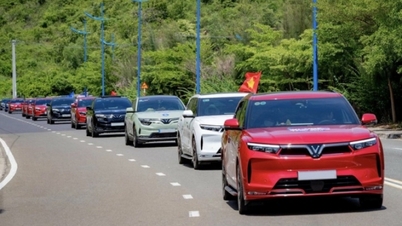






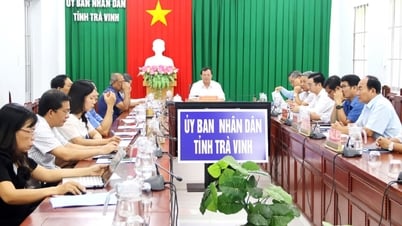

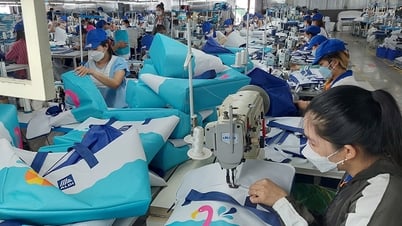

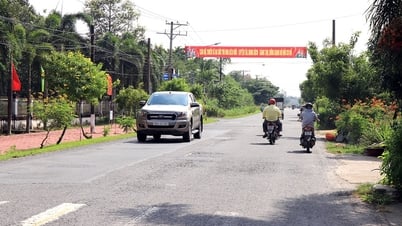


























































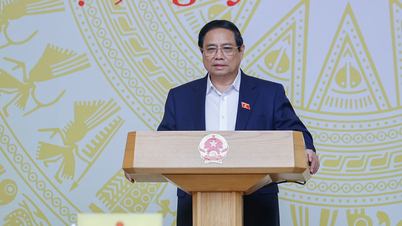
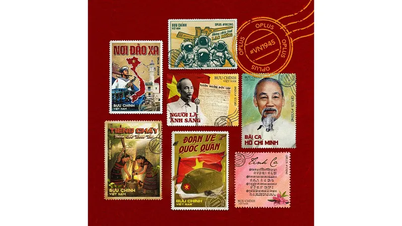













Comment (0)